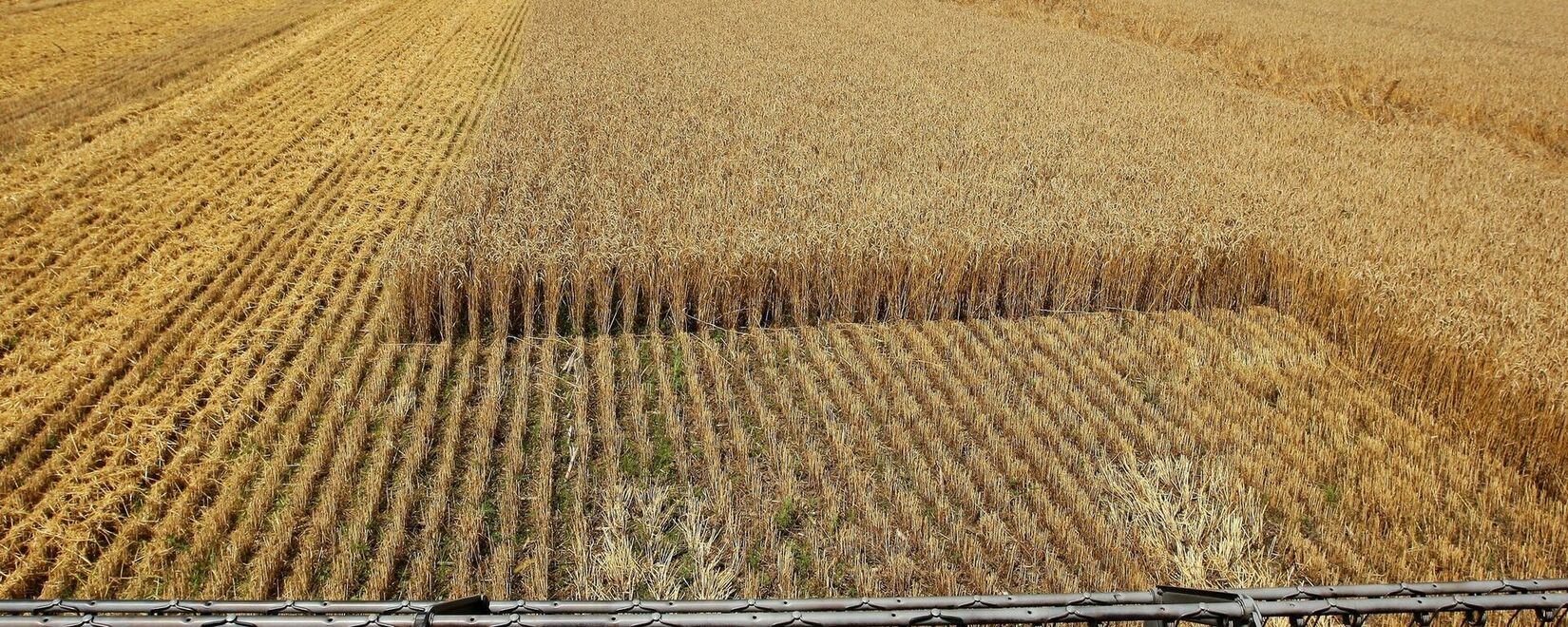Currently, the President of Kazakhstan has expressed concern over the lack of significant progress in achieving the specific goal of increasing the processing share in the agricultural sector to 70%, as stated in the September Address. To address the challenges facing the agricultural processing industry and implement its plans in line with the set objectives, an analysis of the oilseed industry was conducted as one of the key and promising sectors in the agro-industrial complex, according to comments from the National Association of Oilseed Processors (NAOP) cited by the "APK News" news agency.
One of the main problems in the agricultural sector at present is the lack of reliable data in official statistics, including data on total crop production, yield, agricultural crop reserves, planting areas, etc., which has been acknowledged by both the National Statistics Bureau and the Ministry of Agriculture. The government has already decided to conduct a comprehensive audit of the agricultural sector in 2025, which will undoubtedly have a positive impact on the further development of the agricultural processing industry in Kazakhstan," said NAOP Chairman Yadikar Ibragimov.
Processors believe that for the correct development strategy of the agricultural processing industry, it is necessary to thoroughly study and organize statistical data, which is only possible after the full audit in 2025.
For example, throughout the season, organizations supporting raw material exports have been promoting the idea of abolishing export duties on sunflower seeds based on inaccurate statistical data (according to NAOP data, actual sunflower seed stocks as of the beginning of January 2024 differed on average by 33% from official data, or about 262 thousand tons, and the change in gross collection in 2023 exceeded 30%). Despite the existence of a duty, around 20 thousand tons of sunflower seeds are exported monthly, which is roughly equivalent to the annual export volume. Considering the 17% decrease in gross collection of this crop to 850 thousand tons in 2023, local oil processing plants are left without raw materials, as there is a shortage of sunflower seeds in the domestic market, and processing capacity exceeds gross collection by three times," noted Y. Ibragimov.
According to him, export supporters intentionally present arguments based on incorrect statistical data.
"Currently, it is inappropriate to refer to statistics before the completion of the agricultural sector audit in 2025. For example, with monthly consumption ranging from 110 to 120 thousand tons of sunflower seeds, the actual reserves would only last for six months, whereas, according to BNS data, it should last for nine months. Therefore, there will be a shortage of sunflower seeds in the domestic market for almost three months based on incorrect figures, leading to a sharp deficit and an instant increase in prices for finished products, which will negatively impact the population's well-being," claims Yadikar Ibragimov.
On the other hand, export duties not only help stabilize prices for sunflower oil in the domestic market (the prices of bottled sunflower oil from oil mills decreased on average by 30% in 2023), but also contribute to the development of high-protein feed varieties for poultry and livestock, according to NAOP.
Processors' hopes for solving statistical problems are linked to the agricultural census scheduled for 2025 as per the President's instructions.
Furthermore, the Association notes that raw material export proponents are trying to compensate for all the current season's problems by cancelling the sunflower duty, regardless of the reasons for its introduction and which crop it affects. Once again, basing decisions on inflated statistical data. An example is given that in the case of duty-free export of 226 thousand tons of sunflower, 136 thousand hectares could have been allocated for wheat cultivation, which is less than 1% of the total wheat planting area in 2023 (over 13 million hectares). This goes against the country's plans to diversify crops by increasing the cultivation of oilseeds, which are considered more attractive.
"It is unacceptable to risk entire industries that provide the population with essential products, supported by state subsidies during the spring-field work. Therefore, such proposals are, at the very least, impractical. It should be noted that huge amounts of money, over 2 trillion tenge, have been allocated from the budget to agriculture over the past 5 years," said the head of the Association.
Meanwhile, this year, to reduce raw material exports and increase the share of processed products in the agro-industrial complex to 70%, the Ministry of Agriculture has proposed introducing export customs duties on certain types of oilseed, such as soybeans and rapeseed. This proposal was included in the Comprehensive Action Plan for the Development of Agricultural Product Processing and the Food Industry for 2024-2028. A decision is expected to be made by the end of 2024.
Regarding this proposal, NAOP expressed the following opinion:
"The oilseed industry is the foundation for the development of poultry and livestock. For example, soybean and sunflower meal/cake are necessary in poultry diets, while rapeseed cake is widely used in feeding dairy cattle. The government has set the task of self-sufficiency in poultry meat for the country, and work in this direction is currently ongoing. The President stated that in the coming years, 15 large poultry factories and 115 dairy farms will be built in Kazakhstan. In this regard, we consider the introduction of duties timely and strategically important," claim oilseed processors.
"Overall, Kazakhstan has all the prerequisites for implementing the tasks set by the President. It has a favorable geographical location, logistical opportunities, export markets for finished products, a raw material base that is increasingly subsidized year by year. In this regard, the Ministry of Agriculture under the leadership of Minister A. S. Saparov promptly developed a development program, which took into account proposals from industry associations," conclude in the Association.

 Trading platform
Trading platform 
 Monitoring
Monitoring  Express applications
Express applications 
 Fork Work
Fork Work 
 Service
Service  News
News  Directory
Directory 
